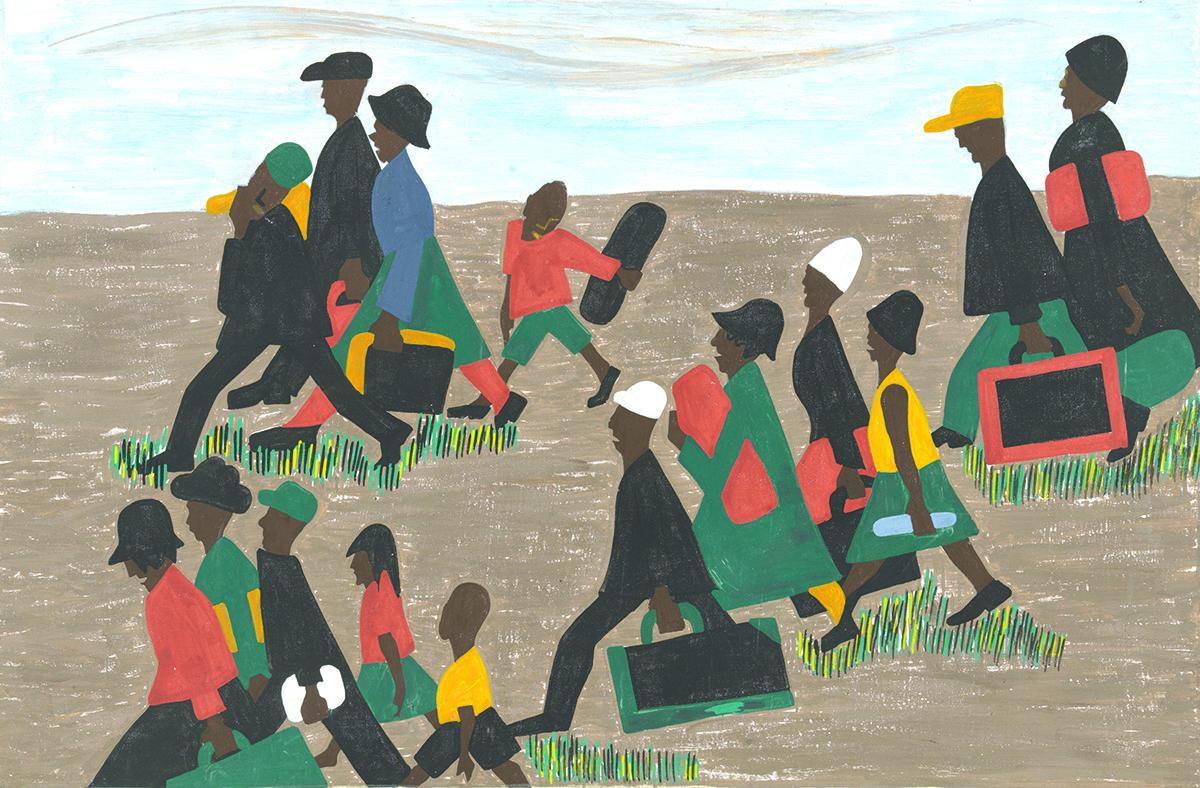The other day, a group of friends and I were having a discussion at dinner that turned into something really interesting and worth talking about. A conversation about language in some TV shows brought up old cartoons, such as the first few years of Disney shorts or really old Loony Tunes shorts, and we found out there are some Loony Tunes shorts that Warner Brothers won’t allow to be showed any more because of how overtly racist they are. None of us really knew how to feel about this. We were, of course, all glad that the company no longer held those views and were ashamed that they ever made these shorts. However, this felt a little too close to covering up history for us to be completely okay with that decision. Yes, having these videos out in regular circulation is probably not the best idea, especially if the company does not want to promote those values anymore, but sealing them away forever sounds like censorship. In fact, these shorts are called the Censored Eleven. We talked a lot in this class about looking at history from a historical perspective and not falling victim to presentism, and this feels to be in a similar vein. Honoring the horrible ways of the past is wrong, but they happened and they should be talked about as having happened, especially because they were wrong. Censoring the bad parts of the past does not help anyone learn or grow, and only obscures the rest of history.
Day: May 8, 2018
Meaningless Laws

As time has progressed in our class, I have seen more and more examples of how laws mean nothing without the enforcement behind them. While we see the government “making new laws” in order to improve or help the black experience most of these laws were not being enforced everywhere. So while these laws were on the book “guaranteeing” rights for the people they were not actually helping anything. I was reminded of this when I was reading an article about Antoinette Harrell who is a historian and genealogist.
What peaked my interest with Ms. Harrell was her research into slavery that continued into the 1960s. This interesting part of this is because all slaves were supposed to be free after the Emancipation Proclamation of 1863. However some of her research led her to finding out about some workers who reminded me a little of indentured servants. They had a specific debt they were supposed to pay back to their “boss”, however every time they would go to pay off what they owed somehow they would still be short an be forced to stay and work the land.
This was particularly familiar to be because I have an aunt who recently passed away that used to tell me about the work her father did as a farm hand, what she called it, and how he had to go to this white mans farm everyday and work his field and in return the owner might give him some of what was grown or a very small wage. It was simply a crazy thought to think that something like that could still be occurring that late into the 20th century. All goes to show that just because something is written in the books as a law does not mean that it will really change what is going on.\
Link to article:
https://www.vice.com/en_us/article/437573/blacks-were-enslaved-well-into-the-1960s
Teaching MLK
Looking back on the readings for the final essay, it was very interesting to see how MLK’s ideas changed with the culture of America, especially because I feel like it contrasts with how he is taught most of the time. When I think about what I was told about King, I remember how he fought for desegregation voting rights, up until the Civil Rights and Voting Rights Acts were passed. Rarely was I ever told about the work he did between that and his death, and I was almost never told about his thoughts on Vietnam and poverty in America. I feel like the reason he is taught this way is because his later work comes off as anti-American at times, and we feel like we need a hero who loves America, because everyone deserves to do well here. I think that telling the first part of the story is important so that we can understand his ideas and important lessons, but ending it there makes it seem like he stopped working because his job was finished. I think that it is important to show how he never stopped working on behalf of his people, and we should not stop today.
Maine
I initially had no clue what I wanted to write about for this last blog post. However, upon some reflection, I realized that I wanted to bring some of this course’s concepts full circle.
Coming from a small town in Maine, and a roughly 700 student high school, there was very little (depressingly little) diversity within the student body. There were maybe four Asian and black students within the whole school. On an even worse note, some students would drive to school with a Confederate Flag flying on the back of their pickup truck, which I just never understood because we lived in Maine… While racism was never a huge problem at my high school, actions like flying the Confederate Flag sent a strong message to white and black people alike. Unfortunately, this was never addressed by administration so it kept happening.
While this is a short blog post, I thought it just to at least briefly think about the fact that people in the most northern state of the US fly the Confederate Flag to school. It sends a strong message that, although this country has come a long way towards “fixing” racism, we still have such a long way to go.
Reparations Due to the African-American Population?
A UN panel announced that the United States owes African-American people reparations for slavery. The announcement apparently stems from the various police brutality reports that are reminiscent of the trauma of lynchings. The committee also said that the US needs to confront its racial legacy.
I definitely think that black people are owed reparations in some sort of manner. I think they should start with repealing the laws implemented during the War on Drugs, and properly funding school systems in areas that are predominately black.
The UN isn’t currently demanding reparations be paid, so, unfortunately, I don’t believe that the US will in anyway take heed of this announcement. But, I appreciate that the report from the UN was released. We just need some action behind it now.
https://www.pbs.org/newshour/nation/reparations-african-americans-un
